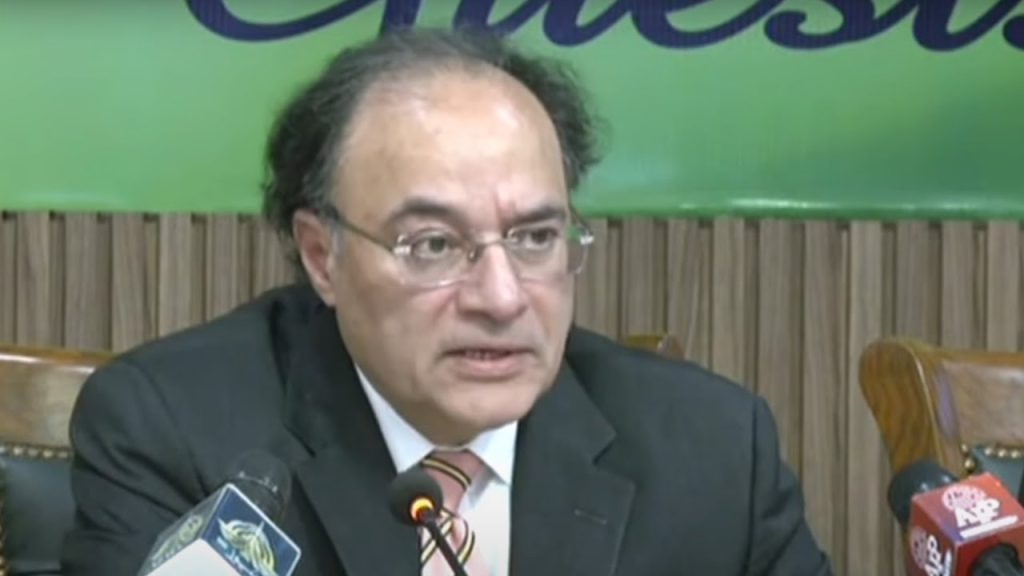Finance Minister Muhammad Aurangzeb has projected that Pakistan’s balance of current account will remain in surplus for the full fiscal year 2024-25, partially contradicting with the central bank estimation that the balance may either be in a deficit of 0.5% in the year.
The State Bank of Pakistan (SBP) in its half-yearly report 2024-25 anticipated that the full-year current account would be either in a deficit of 0.5% or in a surplus of 0.5% for FY25.
However, speaking at a pre-budget seminar at the Federation of Pakistan Chambers of Commerce and Industry (FPCCI) in Karachi on Wednesday, the finance czar said the current account would remain positive for full FY25.
He said the country’s tax-to-GDP ratio would surge to 10.6% in FY25 and the government was aiming to raise the ratio to 13.5% in the next three years through various tax reforms.
“This will be the last International Monetary Fund (IMF) programme for Pakistan,” the finance minister maintained.
Aurangzeb said the government was focused at giving relief in taxes to businesses and salaried class people, where possible, as “the government is all for supporting economic activities in the next fiscal year 2025-26”.
Govt won’t support ‘plots and files’ business, says Aurangzeb
He said the government had appointed independent analysts to take their assistance in making a better budget and make that in line with global best practices for FY26.
“Every sector of the economy has to pay due taxes to lower burden of the high taxation on salaried class people and manufacturing industries.”
The finance minister, however, highlighted that Pakistan was under IMF programme which might limit relief measures for FY26.
“Despite of this, the government may look what it can do in this regard in the years to come.”
Aurangzeb was of the view that there were three major challenges to the businesses and the economy; high taxation, high energy cost and financial cost.
He added the finance cost (Kibor) came down to around 12% in line with the State Bank of Pakistan (SBP) cutting its policy rate by 10 percentage points since June 2024 to 12% at present, enabling businesses and the private sector to take credit for new projects and expansion of the ongoing production lines.
“We are in the right direction, but more to do,” the finance minister said, adding the government was working to see where it could give tax relieves to business and individuals.


